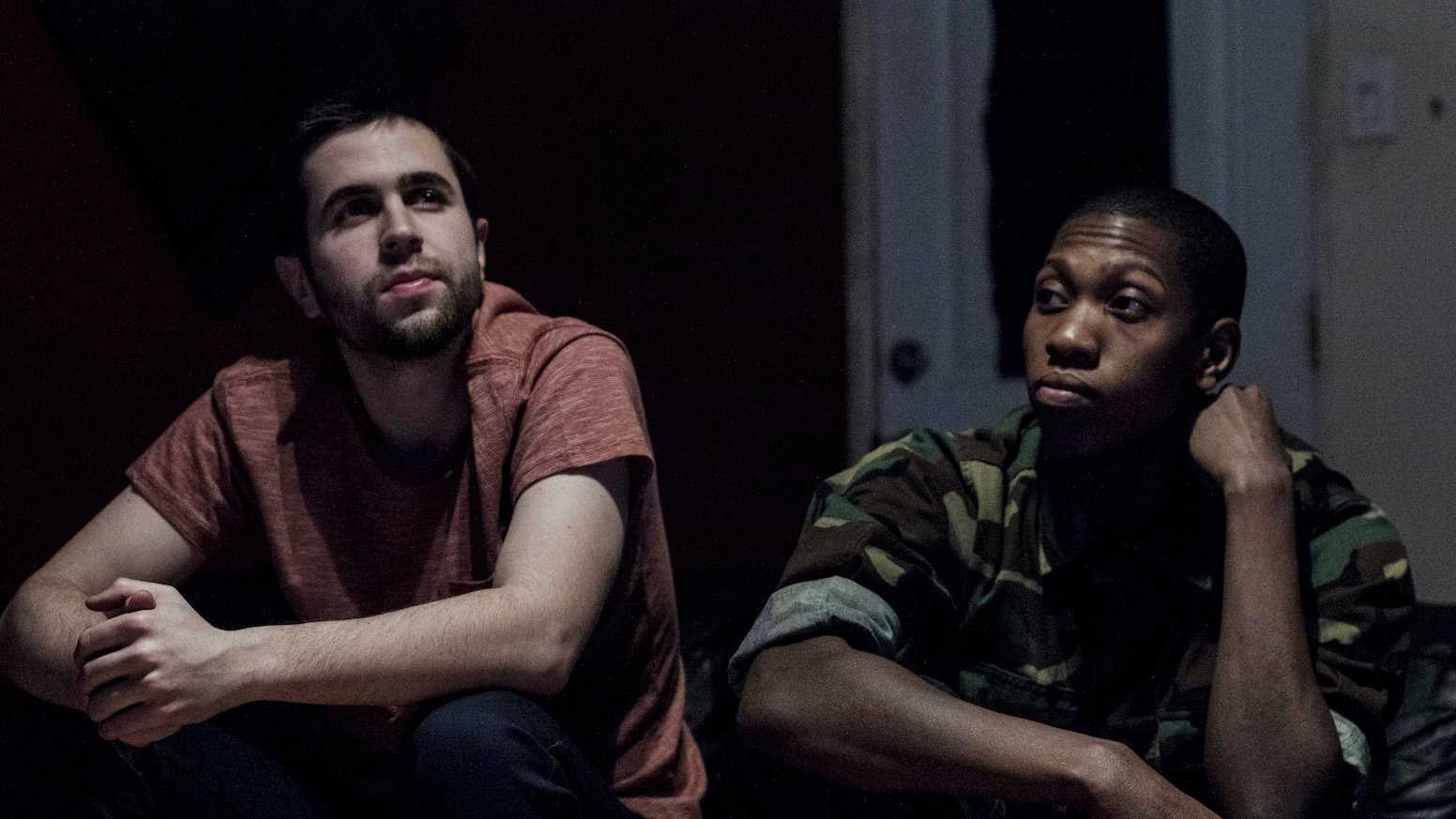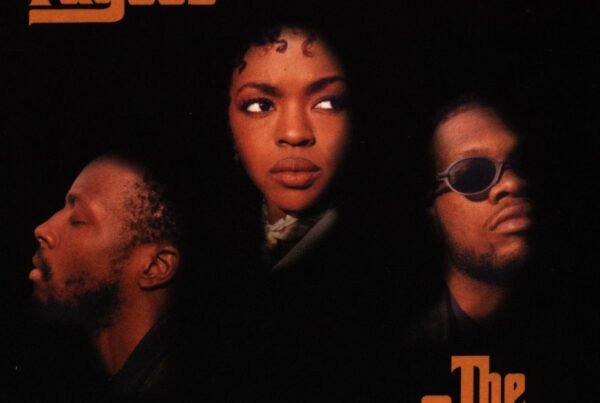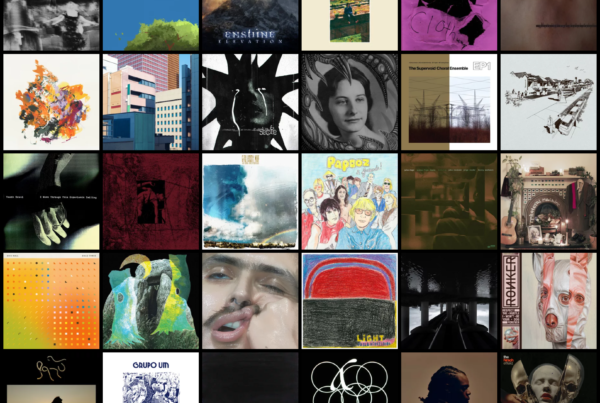Release date: August 26, 2013 | Independent | Bandcamp | Instagram
Coming hot off the heels of a sizeable feature to celebrate the 50th anniversary of hip hop (which you should totally read *cough* *cough*), we bring you some more fresh rap content. This time, it’s all about GNK by New York rapper Kemba, from back when he still went under the moniker of YC the Cynic. Somewhat overlooked in its own time (read: ten years ago), it’s nonetheless a gem of conscious modern rapsmithery.
David Rodriguez
Whenever someone mentions lyrically impressive rappers, my own mind regularly goes to Kemba, formerly known as YC the Cynic. Whenever someone says something like ‘where’s all the good, young rappers?’ or ‘why isn’t there any good new rappers out?’, Kemba also comes up, and he should come up to many others as well because he represents everything that out of touch old heads lament rap’s loss of in the last two decades.
At the young age of 23, prime career-launch age for a rapper, Kemba was putting out immense music with profound lyricism that remained catchy and relatable. His debut, GNK – a media-friendly abbreviation for ‘Gods Ni**as Kings’ – is without a doubt one of the best rap albums I’ve ever heard, so much so that I almost included a song from it on our 50th anniversary celebration of hip-hop article.
A collaborative project with producer Frank Drake, it follows the release of a couple mixtapes also under the YC the Cynic name, honing his wordcraft, flows, and heady nature that gave his music an air of sophistication without any pompousness or holier-than-thou attitude, even as GNK contends weightily with a lot of references and allusions to gods and godhood… or maybe goddom? Nah, godhood. Intermeshed with articulations on identity, especially from a Black perspective, it can be a lot to take in, or at least it was for me when I first found this album about a decade ago.
Maybe at any time or age GNK is a lot though. The production alone is very layered and strong, going from sample-heavy, breezy, city-slick, jazz-flavored beats with an endearing layer of dust on them like in “The N Word” (the kind that Madvillainy-era Madlib might make for an interlude, or for MF DOOM to rap over), to pensive, whimsical numbers that allows Kemba to channel the deepest parts of his music’s themes from the celestial ivory towers he evokes in “God Complex” with a spiteful, iron fist. Literally every song sounds different and it doesn’t result in a disjointed mess, rather a cohesive power fantasy where Kemba detaches from his mortality while making his and others’ humanity more visible than ever. There’s a word for that sort of thing and I can’t fucking think of it.
Anyway, it also allows for Kemba to really bask in his influences, calling forth visions of mighty men before him like idols with his words. This sort of reverence starts early on with “The Pacs” which heavily quotes and references 2Pac, someone regularly deified in hip-hop and street culture, understandably so. Opening up with 2Pac’s monologue during the bridge of “Changes”, it’s not long before Kemba’s dropping his own original, thoughtful bars wrestling with God, forgiveness, and fear over a dark, dramatic beat with clanking percussion and a cinematic touch that feels like a turbulent beginning to a reckoning.
The next song, “HVNLY”, is all about uplifting people and remembering that no matter what path they walk, they are children of God, as if Kemba embodies this angel to remind people of their blessings, from the kid back in his native Bronx neighborhood to the felon doing time up north. This is without a doubt the most positive and upbeat song on the album with an equally angelic hook and easy-going production.
“God Complex” is where things start to take a bit of a narrative turn with Kemba really channeling his previous name by getting cynical with a portrayal of God, Old Testament version if I had to guess by the lyrics:
‘I know this might seem quite irrational
But you should fear no man but me
I blurred the line between fake and factual, yeah
And only death can set you free
You can lay aside the rumors
I’m the one and only ruler
Disobey me if you choose to
I can make your fate come sooner’
He’s not even rapping here – Kemba is melodic with a singy inflection which staples a sarcastic tone on each bar delivered. It’s threatening, but also calming, portraying God or a God-like figure as toxic narcissism incarnate. There’s commentary to be had there and while it may border on blasphemous for some, it doesn’t seem all that malevolent in the greater picture and as allegory.
A step further, and better, “Molotovs at Poseidon” is a masterclass in godly braggadocio, and while it’s easy to see this as a continuation of Kemba’s characterization of God, it’s more impressively read as a rapper talking mad shit and embiggening himself to a godlike status compared to other motherfuckers:
‘Go ‘head and fire your gun, you’re shooting at Zeus
I held on to my crown while I ripped through my noose
I got up from the ground then I pulled up my roots
I reversed the Earth playing “Skip To My Lou”…
‘Your damage is none – you just threw a Molotov at Poseidon
Then felt the flood in your iris and cried for an act of kindness
You tried to cover your eyelids and run, but I’ll be triumphant
Trust me, I’m on a diet, I’m hungry, my ribs touching
My grip clutching your dinner like pliers with no appliances
Must be a sign, you eating lunch is a giant luxury
Fuckers combined couldn’t add up to me’
The wordplay and rhyme scheme is crispy and so fun, as if immolated by the lighting of Zeus himself. This song ends with a lyrical interpolation of A Tribe Called Quest’s “Sucka Ni**a” with Kemba repeating its famous intro and hook, another legend invoked to serve the ethos of GNK.
The album gets a bit more grounded with songs like “Negus” and “The N Word”. The first of those – which in case you didn’t know is an Ethiopian word meaning ‘ruler’ or ‘king’ – juxtaposes the grim, brutal reality of Black folks in America since the slave trade up to police interactions of the modern day, and their royal roots in Africa’s lands, referencing many prominent Black leaders throughout the years elevated to ruler status like the pale-faced kings and queens we all learn about in history classes (‘Picture Langston flipping language dipped in royal garbs/Marcus Garvey did the Garden in embroidered scarves’). Kemba’s hook of ‘I ride for my negus, die for my negus’ goes further in a devotion and adoration for an era when Black leaders were revered and placed on pedestals in their own societies – there’s likely a connection to be made and therefore discussion to be had with how we elevate artists and celebrities nowadays like 2Pac (and The Notorious B.I.G. who is also referenced throughout “Murphy’s Law”), but that’s not something I feel very comfortable delving into myself. It’s also a possible reference to C-Murder’s “Down For My Ni**az” which has a similar, often referenced hook.
Some more flavor injected into the album are the outros of many songs, some funny, but offer further insight into GNK’s themes. The ends of “HVNLY” and “Know It Alls” sample “Rappin’ for Jesus”, one of the funniest videos the internet has ever hosted with a white-bread pastor and his wife performing a bog standard, ‘80s-as-hell rap song about Jesus and living in his image directed at ‘the youth’. It’s wild how they both drop the N-bomb (with an ‘a’ as if that matters) with maximal, blissful ignorance and good intention (not an excuse), so much so that I’ve never really seen anyone take issue or offense to it in its decade-plus existence. It is paradoxical and funny how borderline endearing this video is.
Another ‘skit’ as it were is sampled audio from a childrens’ spelling bee. A kid – white kid, 12-year-old Andrew Lay of Stanley, North Carolina – got a word he had obviously never heard before let alone practiced: negus. The proctors (is that what they’re called?) made the kid say it like five times before spelling it, as if making him part of a joke he wasn’t in on, before he fucking nailed that shit and celebrated in shock. ‘When in doubt, sound it out’ indeed. The last sample is someone, a Black man, on weapons-grade copium, speaking on how God effectively divined and justified the slave trade to bring Black men and women over to America from different tribes and societies in Africa, the best they had to offer, to form one greatest tribe. I’ll just link the transcript on Genius here to read – it’s fucking wild.
I think these inclusions are indicative of a few things, chiefly linking the religious aspects of GNK with Black existence (and highness), but also how trivially people (particularly non-Black people) think of Blackness and perhaps even racism and race relations. White people flippantly saying the N-word, even with those ‘good intentions’ like in “Rappin’ for Jesus”, and a word once held in high regard with motherland, originating societies now reduced to a spelling bee word for white people to maneuver their tongues around and play with like an insignificant toy, perhaps mirroring the general expendable status Black folks have in American society. Am I overthinking this? Yeah, maybe, likely even overstepping my lane a bit with this analysis for which I apologize, but Kemba’s cohesion of all of this is the key focus.
On “The N Word”, GNK comes all together. Kemba ruminates on, well, the N-word and its historical and colloquial uses (‘But if changing a bad neighborhood to be good is good/Then why isn’t changing bad words the same thing?’), but the most important part is at the end with Kemba saying ‘Gods, ni**as, kings – call it out/If words are real, then which are you?’, daring the audience, and more importantly his community, to make a choice: who do you wish to be? What legacy do you want to leave?
What GNK ultimately ends up being, besides great, is an existential exploration of ego, destiny, power, all set to smooth, varied production, the type that doesn’t get as much credit as it should these days. It’s thoughtful and epic, fitting for a project regularly summoning godly images and rap legends alike. I’m surpassing 1600 words at this point and Dom is surely gonna have fun editing all of this [editor’s note: I am thoroughly enjoying myself], but there’s a lot to be said for something like GNK, a debut album that came out in 2013 by a young upstart who crowdfunded this project, found an awesome producer for, and made him an underground darling in a matter of years.
Kemba’s name change didn’t break the momentum either with his next album, Negus, releasing in 2016, Gilda after that in 2019 – both of which got more personal and cutting – and his deeply political The World Is Watching EP in 2020. I won’t lie, no other project hit nearly as hard as GNK did, but that was likely a time and place thing, something to be kept in context of its time and where I was as a rap explorer. Kemba didn’t fall off, I just moved to a place where his work lost some punch. Also, this assumes his music was made with me in mind to begin with, which it wasn’t.
My eyes are still open for Kemba. It’s been four years since he dropped a full project and off the strength of GNK alone, I’ll always be interested in hearing more from him. If you haven’t heard of him, at least his early years as YC the Cynic, I can’t recommend him enough. He was, and still is, a great counterpoint to any old head-ass comments about rap dying the last decade, or ever. It’s dudes like Kemba keeping it more than alive but thriving by having something to say and honing talent even early on to show the world true dominance. In other words, he’s nice with it.






